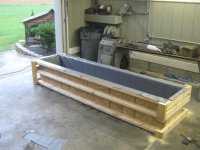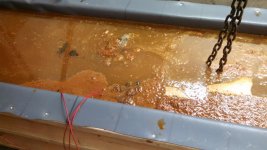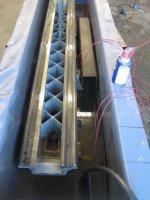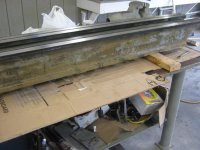m_neagle
Plastic
- Joined
- Apr 9, 2015
- Location
- Lascassas Tennessee
I am in process of rebuilding and painting my 13. I bought this from a school. It was the dirtiest, nastiest machine I have ever seen. I don’t think it has been cleaned since birth. Good teaching huh? I have been cleaning on it for two days. I don’t think my current method of Purple Power and engine degreaser is ever going to work.
I think it needs to soak in Purple Power or something a couple of days. I am terrified that will damage my ways or they will rust up when I remove it before I can get some oil on them. I thought about leaving the ways above the bath.
I would like to clean it up with electrolysis. That scares me even more.
Do you guys have a solution?
Also, thanks to all of you. I have learned a lot from your posts.
Michael,
Serial number 15086 T
I think it needs to soak in Purple Power or something a couple of days. I am terrified that will damage my ways or they will rust up when I remove it before I can get some oil on them. I thought about leaving the ways above the bath.
I would like to clean it up with electrolysis. That scares me even more.
Do you guys have a solution?
Also, thanks to all of you. I have learned a lot from your posts.
Michael,
Serial number 15086 T









